Search Results
Showing results 661 to 680 of 956

COSI's Bubble Recipe
Source Institutions
Everybody loves bubbles, and this is the best bubble recipe ever!
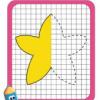
Symmetry Fold-Overs
Source Institutions
In this math activity, learners experiment with the concept of symmetry.
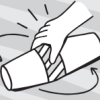
Magic Disc
Source Institutions
In this activity, learners create an optical illusion by spinning two attached cups. A round ball seems to magically appear when the cups spin.
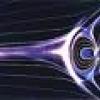
Magnetisphere
Source Institutions
In this activity about magnetism (page seven of the pdf), learners experiment with magnets to better understand how magnetic fields work.
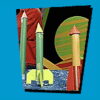
Film Canister Rocket
Source Institutions
In this activity, learners construct and launch rockets using simple materials and their understanding of chemical reactions.
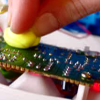
Circuit Bending with Play-Doh
Source Institutions
Break open that used musical toy and squish some Play-Doh over the circuit boards, and you will hear some weird and distorted sounds the manufacturer never intended!
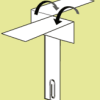
Hang Time
Source Institutions
Learn how to make and fly a paper helicopter! This simple activity includes a template (for the copter "blades") and instructions for folding, flying, and testing designs.
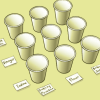
Whodunit?
Source Institutions
In this fascinating and fun experiment, learners use chemistry to identify a mystery powder and to solve a "crime," a process similar to that used by real forensic scientists.
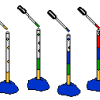
Liquid Layers
Source Institutions
Experiment with liquids of different densities and create liquid layers. For example, oil and water have different densities: oil floats on water because it is less dense than water.
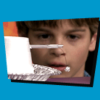
Electroscope
Source Institutions
In this activity, learners make an electroscope out of a foam cup, straw, aluminum pie pan, thread, and foil. Learners use their electroscopes to test for static electricity.
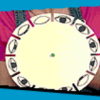
Phenakistascope
Source Institutions
In this optics activity, learners build an animation tool to make mini movies. When you spin a phenakistascope, the pictures move so quickly that your eyes and brain can't separate the images.
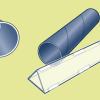
Kaleid-o-mania
Source Institutions
In this hands-on activity, learners build their own kaleidoscopes and explore how light can reflect of off surfaces such as mirrors, to produce beautiful patterns.
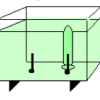
Electrolysis
Source Institutions
Using electrolysis, learners produce hydrogen gas and oxygen gas from water molecules in a solution.
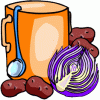
Cabbage Juice Indicator: Test the pH of household products
Source Institutions
Learners make their own acid-base indicator from red cabbage. They use this indicator to test substances around the house.
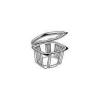
Shrinkers: Cook up some plastic!
Source Institutions
In this activity (on page 2 of the PDF), learners (with adult help and supervision) investigate how heat affects polystyrene plastic.
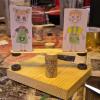
Magnetic Seesaw
Source Institutions
In this activity, learners build a seesaw powered by magnets.
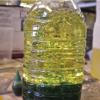
Gassy Lava Lamp
Source Institutions
In this activity, learners use oil, water, food coloring and antacid tablets to create a bubbling lava lamp. Use this activity to introduce concepts related to density, hydrophobicity vs.
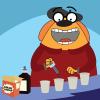
Tempest in a Teacup
Source Institutions
In this hands-on activity, learners determine the types of chemical reactions achieved when combining different household products.
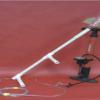
Handheld Water Bottle Rocket & Launcher
Source Institutions
In this activity, learners build handheld rockets and launchers out of PVC pipes and plastic bottles. Use this activity to demonstrate acceleration, air pressure, and Newton's Laws of Motion.
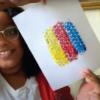
Bubble Wrap Printing
Source Institutions
In this activity, learners will use bubble wrap to print patterns on paper and experiment with mixing colors.
